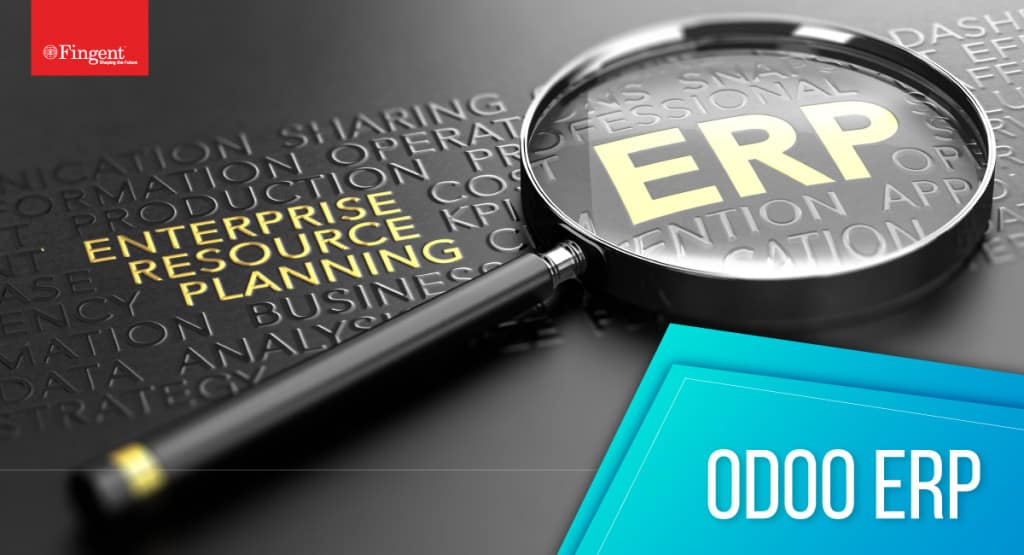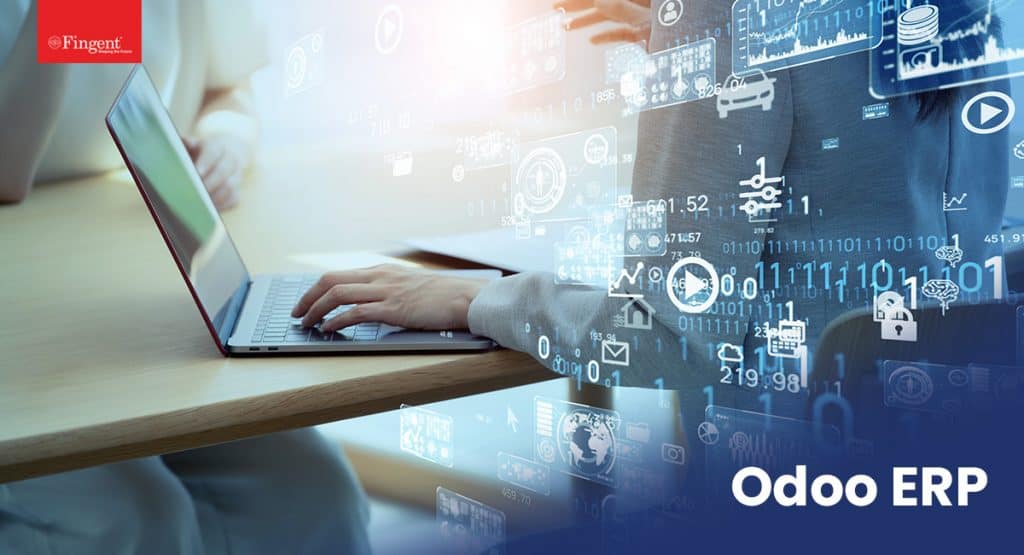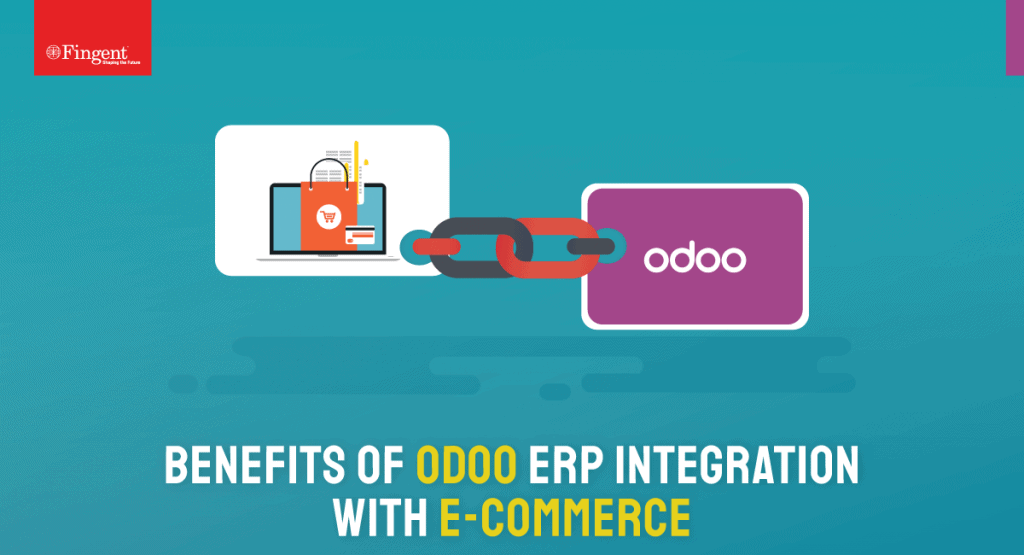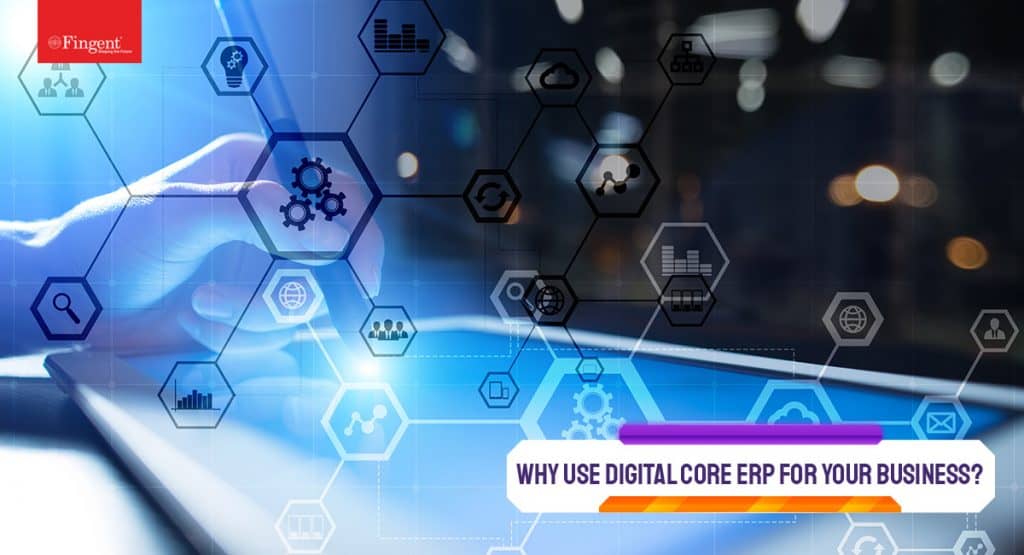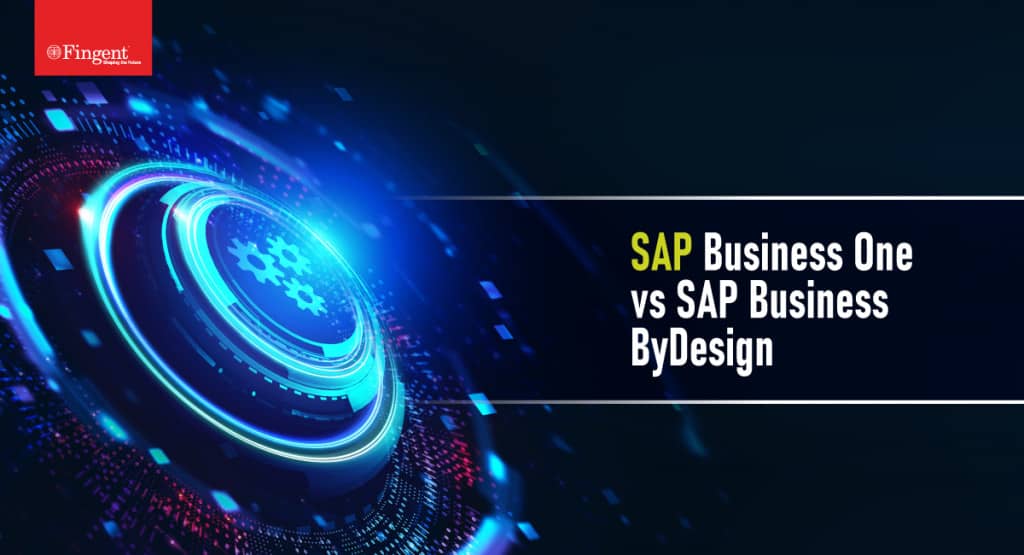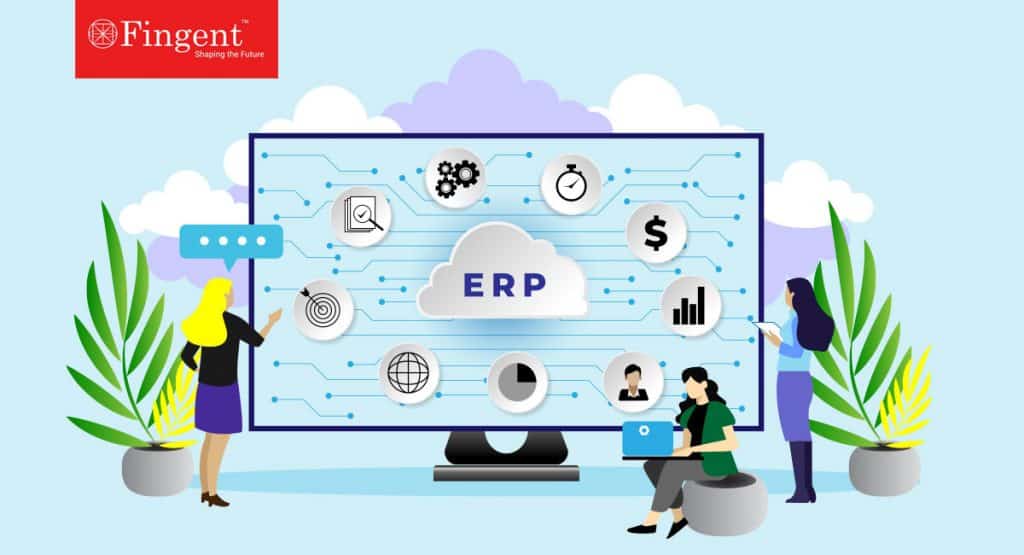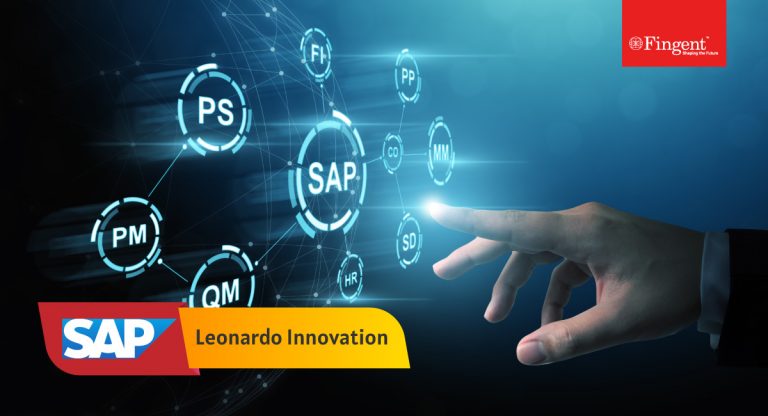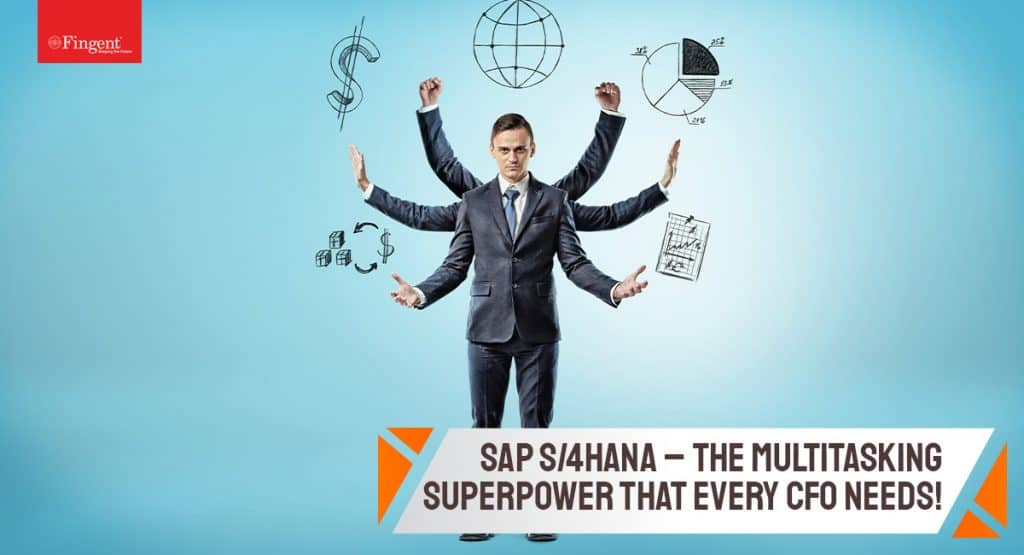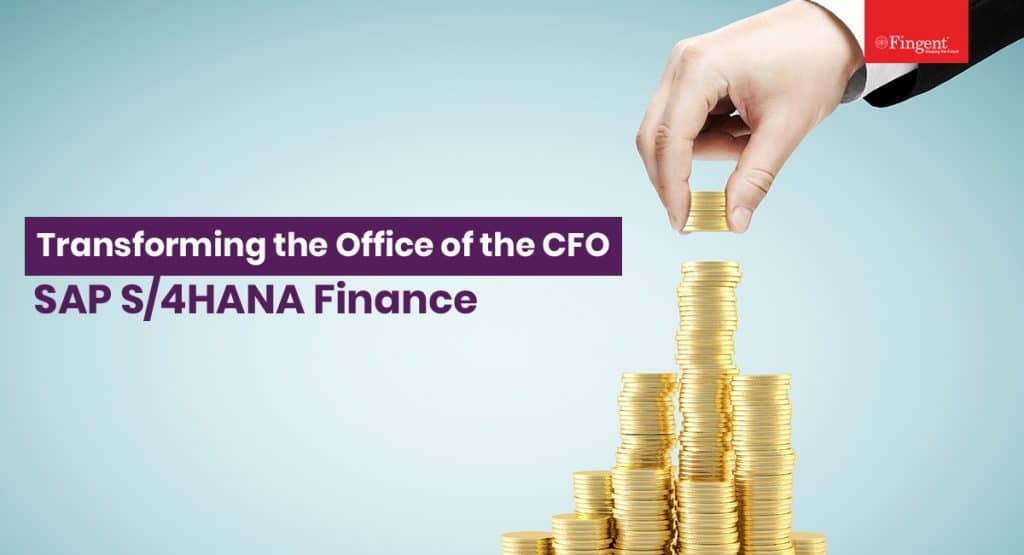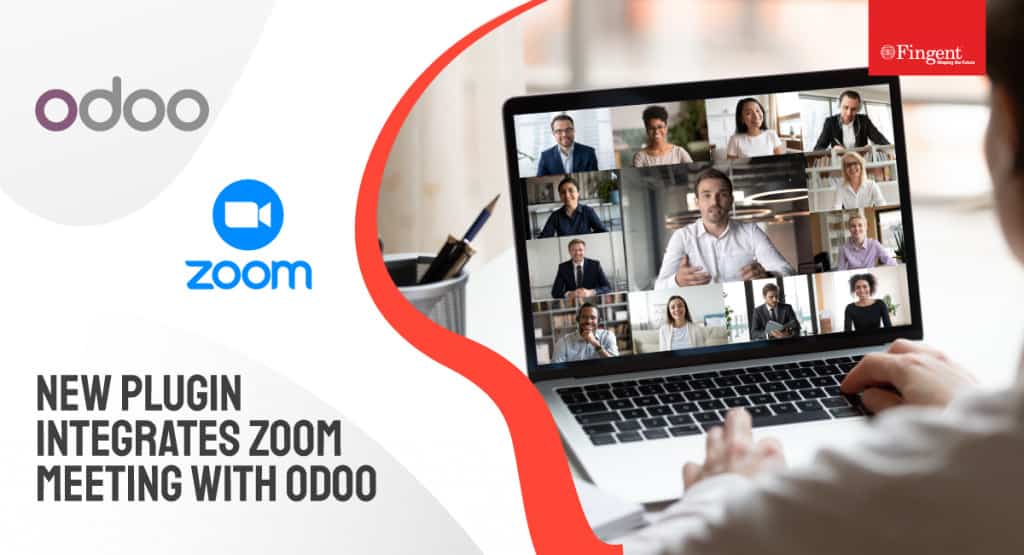Tag: ERP Systems
It’s time to load up your arsenal. Why? Because it’s wartime and you’re here to win!
The COVID-19 pandemic has held the world in its vice-like grip for a considerable time now and many businesses have had to downsize or even shut down in its wake. Just when we thought it was over, we were hit by another wave.
There is no reason to despair though. With the right tools and the right guidance, you can surf through this wave and the next. In this blog, we are going to be talking about one such power tool – Odoo ERP. Odoo ERP’s capabilities and user-friendly aspects are helping businesses to manage their operations successfully despite the challenges brought by the pandemic, and you can too.
A Solution to Pressing Challenges
Finding new customers and retaining existing customers is one of the most common business challenges. According to Kauffman’s statistics, the pandemic heightened this challenge. The increasing competition did nothing to help with this.
Additionally, when the pandemic struck, companies that were not prepared to work remotely faced a huge blow because they had to shut down their offices and work remotely.
Evidently, businesses need a dedicated business management system to successfully cope with these and other challenges. Odoo ERP is a business management tool with the complete capability to manage the entire operations of a company.
Odoo ERP’s capabilities and user-friendly aspects are helping businesses manage their operations successfully despite the challenges brought by the pandemic. The Odoo platform brings efficiency and improvement to all the operating processes of the company.
Read more: 5 Salient Features Of Odoo That Makes it a Reliable ERP for Enterprises
Odoo Is a Better Tool to Invest Today to Stay Prepared For Tomorrow’s Challenges
Pre-pandemic there was a notion that employees’ productivity will be hampered if they work from home. But the pandemic taught us that when digital ways are adopted correctly, remote work can be a success. And the Odoo ERP system has been a boon in catering to these digital requirements.
Odoo ERP is considered the most advanced and easy-to-use tool in today’s tech-plenty world. With the help of Odoo ERP, companies are enjoying seamless integration, better module-to-module connectivity, and effective digital bookkeeping to name a few benefits.
Odoo ERP with its Business Intelligence increases productivity by helping to use the company’s resources effectively. By digitizing record-keeping and pen and paper approvals, for example. Let us consider some specific ways in which Odoo ERP helps businesses stay prepared for future challenges.
1. Minimum workforce
Sudden lockdown measures have forced some companies to cut down on their staff. Odoo’s modules can help your business function well even with fewer employees. Production invoicing, lead generation, and stock movement provide perfectly navigated paths for your business despite strict lockdown measures.
2. No sales due to lockdown
If you are unable to sell your products due to quarantine measures, Odoo can solve your problem. It can help you create a website for e-Commerce. It allows you to create an easy to use, elegant and attractive website. These websites can also be connected with different online payment methods that make buying a lot easier for your customers.
3. Remote management
Due to lockdown measures and transportation restrictions, most organizations have opted for remote work management. Odoo can help you manage every integral business activity from wherever you choose to work. Its efficient functionalities and Business Intelligence capabilities will allow access to your company’s database whenever and wherever you are.
4. Cost-effective
Odoo ERP’s robust modules can minimize your business management costs while ensuring quality service. It offers effective management services at a reasonable price.
5. Secure business communication
Secure communication among employees, partners, and clients is essential to all businesses. Odoo Discuss is a user-friendly messaging application that enables your teams to communicate with each other simultaneously. It ensures sharing of projects and other integral documents without allowing any breach.
There is no doubt that Odoo can refresh your business considerably if implemented correctly. Given that, let us understand what are some common mistakes made in Odoo implementation. This will help you succeed in overcoming any implementation challenges.
Read more: 5 Signs That Imply Your Business Needs Odoo ERP
Common Mistakes Made in Odoo Implementation
Admittedly, implementing Odoo ERP is a huge change for an organization. It can be daunting for a business as it involves multiple considerations. If the implementation is not carried out properly, it can paralyze the entire organization. That is why it is important to choose the right implementation partner. Here are some common implementation mistakes:
- Lack of strategic management planning: A clear strategic roadmap and goal will help identify all the requirements from the ERP implementation. Not having a clear goal implies money-related disadvantages and unorganized due dates leading to chaos.
- Over customization: Over-customization can cause Odoo performance issues.
- Lack of experienced project managers: Hiring project managers that do not have in-depth expertise and lack adequate experience is another mistake that can lead to performance issues.
- Not testing the framework: Due to a lack of time, some organizations decrease the number and profundity of test cycles. Eliminating some tests may leave defects undiscovered and miss important functions as well.
- Lack of sufficient training: Some organizations rush to use the product without sufficient training. Training at the right time is as important as doing it in the right way.
Why Do You Need an Odoo Partner?
Expertise is the primary reason. A good Odoo partner will have the expertise, experience, and knowledge that you need for a successful implementation. They will help you avoid the pitfalls of implementation and execution and can guide you through the nuances of the platform. With techno-functional consultants on board, they will be more successful in identifying complex issues and locating the right business procedures than you will be if you try to do this on your own.
Read more: Why Choose Fingent as your Odoo Partner
Tips To Get The Right Odoo Partner
Here is a checklist that makes your quest for the right Odoo partner easy:
- Experience: Experience in different industries and services helps your partner identify problems quickly and deliver highly customized solutions that newbies cannot. Such experience will also aid them in spotting trends and keeping the system up to date.
- Availability: During the development phase, there is a chance that the software might develop many issues. If the partner is available 24/7, they can address any glitches and prevent significant revenue loss
- Pre and post-service support: Pre and post-implementation training is a must for organizations that have never used Odoo ERP before.
- Access: Ready access to the software developer when you need them makes software modification a swift ride and you can rest assured that you will get exactly what you need.
How Fingent Fits the Bill
Fingent is an official Odoo Partner and has helped many clients successfully implement and execute Odoo’s dynamic features in their business. We have a team of talented, professional Odoo experts with techno-functional knowledge. The presence of certified and senior developers will help in strengthening your business.
Our developers help you access and customize Odoo’s powerful features and build custom applications for your business that will give you an edge over the competition. With rich experience in implementing Odoo ERP for different industries and working with its different modules, you can rest assured that we have the technical know-how and the business experience to do it right for you.
Connect with us now!
Stay up to date on what's new

Featured Blogs
Stay up to date on
what's new



Talk To Our Experts
Businesses today need a reliable, effective, and user-friendly support system to tackle the rapidly evolving market changes. Odoo ERP offers features and easy-to-use models that enable businesses to simplify their processes, reduce costs and improve efficiency. It also offers free and paid versions with an outstanding integrated system providing businesses with reasonable flexibility and scalability. With these and many other unique capabilities, Odoo ERP is turning into a hot topic amongst top companies today! With the release of Odoo 15, expectations have risen even more! Businesses are strategizing ways in which they can deploy the improved capabilities of Odoo 15 to enhance their business growth. This blog will take you through what’s new in Odoo 15 and how you can leverage these enhanced features for your business.
What is Odoo 15?
The all-new Odoo 15 is likely to launch in October 2021. It will be released in the Odoo Experience Meet which will be conducted virtually due to the COVID-19 pandemic prevalent in many parts of the world. Odoo 15 is expected to feature advanced tools that can help improve business performance and efficiency. Odoo 15 is believed to be the ultimate business solution with its latest web-based integration and superior architecture.
Read more: 5 signs which imply that your business needs Odoo ERP
A Look Into the Expected Features of Odoo 15
1. New import screen
Odoo 15 is expected to extend the experience with its new importing screen feature. This new import screen feature includes a menu to handle cash rounding making it seamless for accounting and generating the invoices.
This feature is expected to be available in all the required modules and functional tabs.
2. Capable options in Pivot and Graph views
Odoo ERP software provides data representation with Pivot and Graph views. The Odoo 15 version will most likely allow you to edit and adjust the graph using Odoo studio. With this, you can extend the representation of the data to valuable insights for improved decision-making and analysis.
3. New HTML Editor
Odoo 15 is expected to include an attractive new HTML editor. While it will be similar to text editors, it will include HTML codes. So, many developers are using it to extend productivity.
4. Coupon and Promotion Program in POS
While the previous versions of the Coupon and Promotions were exclusively for Sale and eCommerce websites, the Odoo 15 coupons is created to support both eCommerce as well as POS.
The feature will be available in the POS settings. While under the product menu you will have the option to create Coupons and Promotions based on your business needs for later use. The cashier can click on the Enter Code button from the POS and apply the Coupons for Point of Sale Order which will be reflected in the customer’s invoice.
Considering the previous trends of Odoo releases, Odoo 15 will have an enhanced user experience that is sure to blow your mind.
5. New command and command editor
Odoo 15 will include the new command and command editor. It will help handle invoices in accounting configuration.
Read more: How Odoo ERP Simplifies Sales Management in Your Organization
6. CRM
The new feature in the CRM is expected to improve managing leads and well assigning salespersons.
Using this feature, leaders can allocate the desired team members to activity or lead in the Odoo 15 CRM module. This will augment the organization’s sales activity and the team members’ collaboration for the leads.
7. Project burn down chart
This feature will be introduced in the Project section. Here, you will find an easy reporting tool to view the actual chart of the project’s progress phase-wise.
Additionally, the chart will help identify the current trend and any delay for the project deliverable.
8. Share buttons
The share functionality will be included in the customize section of the eCommerce website platform.
Typically, the share button allows the products to be shared on different social media platforms through the website portal. Using the new functionality, you can share the details on the platform to finalize the product.
9. Purchase dashboard
The purchase dashboard gives an amazing perspective for the dashboard comprising all the purchase values and graphs. The dashboard provides the needed information about the tax and untaxed-based total. A click on the reporting tab of the Odoo 15 dashboard will seamlessly get you a detailed report.
10. Website gift card
This option allows you to sell the card on eCommerce. This functionality creates unique codes for the sale of Gift Cards. These unique codes are given to the customers either via email or physically.
Odoo apps or modules help create multiple unique codes for the purchase of a gift card. Odoo 15 is likely to upgrade these features.
Additional features
In addition to the above-mentioned features, Odoo 15 is likely to incorporate these features as well.
- Business Intelligence Tools
- A newly designed eCommerce product page
- Formulas of BOM, %of final products, etc., to improve the process manufacturing.
Read more: Why Choose Fingent as Your Odoo ERP Partner
Conclusion
Odoo ERP implementation can help you manage your business seamlessly and with Odoo 15 you can enhance it further with customization. In general, Odoo 15 brings several opportunities to users and developers and helps them explore better opportunities.
At Fingent, we constantly indulge in building innovative modules for Odoo and other ERP platforms. The rising capabilities of Odoo are sure to unlock unique opportunities and we are preparing businesses to deploy the same.
If you think your business is ready to deploy the rising capabilities of Odoo, then connect with our experts today, and explore unlimited possibilities for your business!
Stay up to date on what's new

Featured Blogs
Stay up to date on
what's new



Talk To Our Experts
How Cloud ERP and ERP Systems Support The Manufacturing Industry?
The manufacturing industry has always been highly dynamic and competitive. However, the COVID-19 pandemic and the extension of lockdown restrictions weigh down on manufacturing companies across the globe, causing many to lose momentum. At the same time, customers who are always on-marketplace are expecting high-quality, individualized products delivered within shorter timeframes. To meet these requirements, manufacturers must synchronize their demand chain with the supply chain. The appeal of ERP systems (enterprise resource planning systems) for manufacturing in this scenario is evident. Here’s everything you need to know about ERP systems for manufacturing.
What is the importance of ERP systems for manufacturing?
ERP systems for manufacturing enable manufacturers to compile and maintain their business in an easy-to-scale model. According to G2 (a leading tech marketplace), 47% of ERP users belong to the manufacturing sector, and nearly 50% of companies are keen on acquiring or upgrading their ERP systems.
Fortune Business Insights reports that the global ERP software market size is estimated to reach USD 71.63 billion by 2026, at a CAGR of 8.5% during the forecast period (2019-2026). ERP systems for manufacturing encompass every function and streamline every business operation.
Though automation is not a new concept, the convergence of the digital world with the physical world has transformed the supply chain. In manufacturing, AI can be used to increase uptime and ensure consistent quality. AI and analytics aid in better forecasting, which in turn means better business and better returns.
Read more: Top 10 Technologies That Will Transform Manufacturing in 2021
Here are six reasons that emphasize the importance of ERP systems for manufacturing.
1. Reduces forecast anxiety
Most businesses worry about the next quarter. ERP systems for manufacturing help generate forecasts and sales reports based on historical transactions. This increases the accuracy and dependability of production and keeps stock levels in line with the increase and decrease in demand.
ERP systems can combine data, statistical algorithms, and predictive analytics to help businesses identify future outcomes based on the past. Predictive analytics can help you determine customer responses, forecast inventory, and even detect fraud. Improved supply chain visibility will help you set the level of preparedness required on the supply side to match demand. It can help you anticipate customer demand and stock goods to fulfill the orders.
Read more: 5 Reasons to Integrate Your E-commerce Application with Odoo ERP
2. Increased mobility and employee efficiency
With the lockdown measures tightening, working from home can be challenging for businesses. When the pandemic threw a curveball at companies, ERP systems for manufacturing have handed them a new strategy by enabling employees to work remotely and access all the relevant information they need from a single portal. They can access data through their laptops and computers and even from their phones and tablets, no matter where they are.
3. Flexibility
As each wave of the pandemic takes the world by surprise, manufacturing industries must ensure they are flexible to respond quickly to changing market trends. Such flexibility enables a business to be collaborative in meeting demands and promoting increased revenue and efficiency.
4. Increased profitability
Are you focusing on increased revenue in the next few months? As you are already aware, getting more work done at a lower cost automatically improves profits and encourages growth. ERP enables manufacturers to be alert to changes and react quickly to variations in raw material costs and delivery timeframes.
Cloud-based databases enable business leaders to process information quickly and equip them to make high-quality decisions rapidly. ERP systems for manufacturing increase organizational efficiency, eliminate unprofitable areas and cut down on waste. Moreover, ERP software dramatically reduces control and inventory management expenses.
Read more: How Organizations can Gain a Competitive Edge by Implementing Digital Core ERP
5. Enhanced security
Advancement in technology has made data available at our fingertips. Unfortunately, it has also made it readily available for hackers and criminals. The significance of data privacy and confidentiality has prompted most countries to have data protection laws in place, and compliance with those laws is non-negotiable. ERP systems for manufacturing have various features that enable your business to protect personal information. ERP system allows you to code your data and secure it by restricting the data through identity and access management.
6. Customer service
Every business must be concerned about customer acquisition and retention. ERP systems for manufacturing allow you to centralize and streamline your client information. This will help your sales team focus on building and maintaining customer relationships. End-to-end tracking and insights offered by ERP will help you provide better customer interaction. Since ERP supports e-commerce integration, businesses can handle web-based order processing and client interactions.
Read more: How Odoo ERP Simplifies Sales Management in Your Organization
Cloud ERP for manufacturing
Fear of misstep may prevent businesses from moving to the cloud, but outcomes prove that cloud-driven ERP is far more beneficial when compared to manual methods. Here are some benefits of cloud ERP:
- As each department has its own requirement, a customized ERP solution caters to operational and departmental needs.
- Cloud ERP allows your employees to access their data on the go. This aspect has been very crucial given the unprecedented circumstances brought in by the pandemic.
- Real-time data and reporting help in determining the future of your business and accelerates your decision-making process.
Read more: Top 6 Reasons Why You Should Move to a Cloud-Hosted ERP
Tried and tested ERP systems for manufacturing in 2021
Functionalities of ERP systems for manufacturing help organizations minimize production lead times and increase automation. Here are three tried and tested top ERP systems for 2021:
1. Odoo ERP system
Odoo manufacturing ERP software allows you to handle complex production workflows, product planning, order and inventory management, schedule management, warehouse management, bills of materials, purchase, PLM, maintenance, and quality.
Odoo ERP for manufacturing allows you to:
- Create a manufacturing order
- Configure work center
- Configure routing
- Configure bill of material
- Create scrap
- Product life cycle management
- Preventive and corrective maintenance management
As an Official Partner of Odoo, Fingent is primed to provide the best Odoo ERP consulting, implementation, and maintenance services for your business.
Read more: Why Choose Fingent as Your Odoo ERP Partner
2. SAP ERP system
SAP manufacturing software and Industrial Internet of Things (IIoT) solutions enable manufacturing companies to accelerate time to market, gain new production efficiencies and lower costs.
SAP offers a wide range of software solutions for manufacturing companies, such as SAP S/4HANA Manufacturing solutions, SAP Manufacturing Execution, SAP Manufacturing Integration and Intelligence, SAP Digital Manufacturing Cloud, SAP Environment, Health and Safety Management, and so on.
SAP ERP system helps in two specific categories:
Manage inventory and bills of material:
- Handle bills of material and multi-level bills of materials
- Record, track and produce serial numbers for incoming and outgoing products
- Manage multiple units of measure
Manage the production process:
- Generate both assembly and disassembly work order
- Maintain records
- Generate finished goods.
Read more: https://testingweb.fingent.net/sap-erp-central-component-sap-ecc/
SAP ERP software offers digital manufacturing solutions to meet the demands in a challenging market. SAP’s solutions for the manufacturing industry include Digital Manufacturing Cloud solutions, Manufacturing Execution System (MES), Production planning & scheduling, and IIoT. Being an SAP Silver Partner, we help businesses leverage the full potential of their SAP ERP software.
Read more: SAP Business One vs. SAP Business ByDesign: Helping Businesses Pick the Best
3. MS Dynamics ERP system
Microsoft Dynamics 365 ERP system offers a holistic package of solutions for manufacturing companies that include ERP, CRM, BI, Analytics, and a horde of top-notch applications. You can easily manage your assets, supply chain operations, production and purchase orders, supply chain planning, bills of materials, and a wide variety of applications that enhance your business performance from the shop floor to the last-mile delivery.
Tools of MS dynamics can help you:
- Control financial management
- Deliver better customer service
- Collaborate across your virtual organization
Read more: ERP Software Selection: 5 Step Checklist for CFOs
Over to you
Manufacturing is the economy’s backbone. ERP is an excellent tool that gathers all information from every corner of the business and translates it into financial data and other valuable insights that help companies make strategic decisions in 2021. The potential of totally streamlined business functions makes the benefits of implementing ERP systems for manufacturing a worthwhile investment.
Over the past 17 years, we have been helping businesses solve challenges through technology. Unlock your business value with custom ERP solutions or ERP implementation, migration, upgrade and support. Give us a call!
Stay up to date on what's new

Featured Blogs
Stay up to date on
what's new



Talk To Our Experts
Digital core ERP can help bring about innovations across the value chain. Companies have to get ready to compete by leveraging the digital core or be left behind.
Take your business to the next level using digital core ERP!
Organizations commonly use Enterprise Resource Planning or ERP software to streamline their back-office functions, logistics, customer service operations, and inventory management. However, it is not agile enough to match the ever-changing requirements of a digital customer.
To establish agility within the foundation of ERP, providers worldwide are repositioning themselves to adapt to the new shift of digital core. Digital core ERPs such as SAP S/4HANA can help companies to stay relevant in today’s digital economy. Odoo ERP and SAP are two of the leading core ERP vendors that help automate back-office functions and accelerate your journey to the intelligent enterprise.
Read more: Unlock the Potential of Intelligent Enterprise with SAP Leonardo
What is meant by digital core?
Simply put, the digital core includes technology platforms and applications that enable organizations to transform into digital businesses and meet the changing customer needs. Digital core ERP allows companies to overcome complexity in enterprise and resource management and drive business innovation.
It includes emerging technologies such as IoT, AI, machine learning, and advanced analytics that require businesses to adopt flexible, scalable, and cloud-based platforms. Digital core prepares data for machine learning systems, text to speech, neural networks, decision making, and other advanced applications and creates algorithms for business and IT.
The digital core will allow organizations to improve their existing business processes or develop new business models using digital transformation initiatives.
This new integrated system allows business leaders to predict, simulate, plan, and predict future business outcomes in the digital economy.
Read more: SAP S/4HANA: Transforming The CFO into a Business Value Creator and Role Model
Why is digital core significant for your business?
Businesses that fail to address the changing enterprise and consumer demands due to their rigid core systems face the risk of losing the competition to their more agile counterparts.
To prevent losing business and reputation, enterprises must leverage digital core in the right way and integrate it seamlessly with their internal and external partners. In other words, enterprises must look beyond digitizing peripheral processes and align their core to meet the changing demands. It will not just eliminate manual steps and deliver agility but also provide a seamless user experience.
Examples of digital core
Finance
Finance professionals can leverage the digital core to obtain a single source of truth for finance. Finance departments have to handle reconciliations between internal and external reporting and multiple sources of truth stored in different ledgers. While traditional applications can help optimize and control functions, they cannot create a single source of truth, resulting in data accumulation by reconciling ledgers and valuations. With the digital core, businesses can eliminate reconciliation and execute seamless closing from unified data models. It also improves the allocation and closure of processes by ten times. The digital core’s main advantage is that it helps simulate financials in real-time with many ‘what-if’ possibilities.
Read more: How Fingent Helps CFOs Gain New Insights and Reliably Enable Key Decisions
Automotive manufacturing
The digital core can provide a digital experience along the automotive manufacturing value chain. The digital core can power a connected car to offer a personalized driving experience to drivers, including services like parking and fuelling options based on real-time information. The connected vehicle captures data that can be used for predictive analysis to gain insights into driver behavior and preferences. The digital core also helps enhance manufacturing by moving from batch orders to real-time manufacturing resource planning to meet the growing demand.
What are the benefits of the digital core?
Digital core allows enterprises to integrate business process and transactional data from back-office ERP systems with a large amount of data (structured and unstructured) from different sources. Advanced analytics can be embedded in the digital core data to produce new insights, such as proposing further actions and predicting outcomes. Interestingly, many of these processes can operate automatically in near real-time.
How to prepare for digital core transformation?
Firstly, it is essential to have an all-inclusive digital strategy along with effective executive leadership. Additionally, enterprises can focus on three critical tasks:
- Restructuring the organization
- Transforming the organization’s culture
- Re-platforming their technologies
As digital core transformation will have an impact on both the core and the peripheral assets as well as technologies, the new strategy must allow them to:
1. Push tailor-made solutions
Companies that use SAP products can move to SAP HANA products such as SAP S/4HANA and opt for the right cloud-based products to allow better agility during deployment.
2. Establish strong collaboration with partners
Collaboration with partners will help you achieve faster time-to-market for innovations. Also, you can leverage partner innovations along with data integration to deliver value to your customers continually.
3. Enhance the business
Use business process management tools to optimize your business processes and meet customer expectations. Technologies like cognitive analytics allow businesses to identify strategies that lower their value.
Advanced skill sets and enterprise-wide scale are required for digital core transformation, which may be challenging for most businesses. Therefore, it becomes imperative that you find an experienced and trusted partner who can support your digital core journey.
Here are a few tips for choosing the right implementation partner:
- Evaluate their investments
- Understand their willingness to collaborate
- Gauge their implementation expertise
- Look for SAP or Odoo ERP partners
- Gauge their desire to embrace new products and platforms
Read more: 5 Salient Features of Odoo that Make it a Reliable ERP for Enterprises
Why choose Fingent as your digital core ERP implementation partner?
Fingent top software development company, offers ERP implementation and consulting services to businesses worldwide. We are an Official Partner of Odoo. Our Odoo ERP implementation and customization projects are tailored for easy adaptability. Fingent is also an SAP Silver Partner. With our expertise in cloud computing and custom ERP development and implementation, we can support you through this critical time and help stabilize your business operations and strategize for the future. Get in touch with our expert to discuss your requirements.
Stay up to date on what's new

Featured Blogs
Stay up to date on
what's new



Talk To Our Experts
How does Odoo ERP Customization Help Businesses?
In the current age of empowered consumerism, businesses should never underestimate the importance of customization in their strategy. Each company has its specific requirements, so customization has become increasingly significant to business growth in the past few years. As businesses wade through unprecedented times, customization emerges highly relevant in 2021. Enterprise systems like custom Odoo ERP solutions, in particular, witness an increasing market adoption.
Undeniably, customized ERP software can unlock tremendous opportunities for businesses to grow and expand. However, do you feel that committing to a software vendor could mean you are relinquishing control of your business or that it might not be financially viable? If yes, we invite you to read this article and put your fears to rest as you discover the importance of Odoo ERP, especially as we approach 2021.
Read more: How Odoo ERP Simplifies Sales Management in Your Organization
Does Your Business Need Odoo ERP Customization?
Every business has its requirements, and just because one methodology worked for a particular company, it cannot be a yardstick for all enterprises. Hence, it’s crucial to customize your business software to address your specific needs. The foremost reason for having customized Odoo ERP software is that it can address your specific business requirements. It is essential for businesses to wisely use this capability and customize their Odoo ERP software for an organized workforce and a highly streamlined workflow.
Read more: 5 Salient Features of Odoo that Make it a Reliable ERP for Enterprises
Consider a few reasons:
1. Process Extension
The productivity of any business depends on its work process and business forms. Each association has an alternative work process that may require customization to be more effective. To that end, business leaders may have to stretch out procedures to build new functionalities. In such situations, customizing Odoo ERP can improve collaborations within the work process.
2. Increase application lifespan
Applications are building blocks of any business process because they provide vital features and functionality while simplifying the business process. Given that, businesses cannot afford to lose applications at a critical moment. Companies thus need customized ERP solutions to increase the lifespan of business applications.
3. Establish Unique Identity
Every business has specific objectives to accomplish, which sets them apart in the market. Online marketing activities and data reports of a business mirror its unique identity. Customization of Odoo ERP software can empower businesses to establish their unique identity despite challenging situations.
4. Mobility
With the changes brought about by the pandemic, the need for mobile ERP solutions has taken precedence. Odoo ERP customization can help organizations achieve the desired mobility.
5. Additional features
COVID-19 has redefined the way businesses function that necessitates improvements and upgrades in the business process for 2021. However, it would help if you streamlined each upgrade with the existing process. You can achieve this by incorporating additional features to improve the performance of the whole organization. Odoo ERP customization will help you include other features tailored for your specific business needs.
Read more: Fingent’s new plugin facilitates the scheduling of Zoom meetings from Odoo!
6. Increased adaptation
The pandemic has made it evident that an unprecedented event can take you completely by surprise and change the face of your business. Quick adaptation is necessary for businesses if they are to survive and thrive. However, it can be challenging to find new ways that align with your existing business process. Business systems that are not flexible to adaption can collapse, bringing a thriving business to a grinding halt. Odoo ERP customization enables companies to achieve flexibility, empowering them to adapt quickly as the need arises.
Benefits of Odoo ERP Customization
Odoo ERP customization offers businesses increased flexibility and better control resulting in increased sales and improved customer relations. Here are four main benefits of customized Odoo ERP software:
1. Flexible
Flexibility and better control over mission-critical business functions are two of the main benefits of Odoo ERP customization. The extent of that flexibility depends on the type of customization done by the ERP development company. Since Fingent is an official partner of Odoo, our team is fully trained in Odoo ERP development. Our projects are tailored for easy adaptability.
2. Comprehensive
Odoo ERP covers a wide range of business needs, such as financial management, warehouse management, CRM, and human resource management. It can integrate almost all aspects of a business to improve overall efficiency.
Read more: 5 Reasons to Integrate Your E-commerce Application with Odoo ERP
3. Offers support and allows upgrades
Customized ERP applications give you complete control over their features. It also allows you to upgrade the applications when required. At Fingent, we offer user-friendly applications that help businesses achieve their daily organization and management goals.
4. Development time
Development time might concern enterprises that need to deploy a customized ERP solution within a given time frame. The development timeline varies from project to project, depending on the requirements and expectations of an organization. However, it is a profitable investment considering the long-term benefits.
5. Cost-effective
There is a misunderstanding that customization of the Odoo ERP system costs a fortune or might complicate the software system’s entire delivery. This has held back some businesses from investing in it. While it is true that customized ERP solutions require to be developed from scratch and tend to be more expensive than off-the-shelf systems, you must consider that the benefits and long-term savings far outweigh the cost.
The development cost of customization depends on various factors such as the type of application, the number of features, and the time required for the development. However, Odoo offers a basic ERP system with a low-cost license fee. Hence, developing a simple enterprise application with basic features can be cost-effective in the long run. Organizations can maximize the budget on the customization of the platform.
6. Security
Odoo ERP is known to be secure by design. Being an open-source platform, Odoo is under constant scrutiny by its users. This ensures that it continually improves on bugs as soon as users report them.
Easy Adaptability with Complete Control – Grab It Now
Customization of the Odoo ERP system provides you with the functionality that your business requires. It eliminates any unnecessary features that could confuse a customer and allows you to customize the source code to suit your business needs and features. Customization can also reduce entry duplication and removes redundant fields, which enhances the efficiency of your employees. It can address your current business requirements while providing you with the opportunity to continually improve and refine your business processes as 2021 approaches with new challenges.
If you are worried that the implementation might be difficult, we want to assure you that it isn’t. Fingent’s Odoo implementation projects are tailored for easy adaptability and user-friendliness while ensuring that you have complete control over your processes. Contact us, top custom software development company and discover how we can collaborate to bring value to your business.
Stay up to date on what's new

Featured Blogs
Stay up to date on
what's new



Talk To Our Experts
What To Watch Out For In 2024 On ERP Market Trends
It’s true that we can never bid adieu to last year’s trend-setting technologies like blockchain, AI, IoT, and multi-cloud. But, neither can we not talk about the progress where technology is likely to echo around the ERP space.
According to a study by MarketWatch, “The ERP software market is expected to rise globally to $47B by 2022”. Let us find out what are the possible market trends in ERP for 2024.
Drastic Rise Of The IoT Market
According to Statista’s latest research, “the global IoT market will rise exponentially from $2.9 trillion in 2014 to over $7 trillion in 2020”. This leads to a situation where ERP systems will need a new level of intelligence and automation to make platforms collect data and insights.
Earlier, only a small percentage of data were created and processed outside a traditional data center. But in the future, there will be a situation where nearly all data will be generated from outside of the data center.
IoT is expected to drive the design and deployment of many operational analytics solutions. Industries such as retail, banking, and telecommunications will also adopt operational analytics to enhance customer experience and quality.
Related Reading: Get answers to where and why should you invest in IoT.
Accelerating Transition To Cloud Computing
According to Statista Reports, “the global market revenue of public cloud services will surpass 278.3 U.S. Dollars in 2021”.
The benefits of this would be greater data security, minimal dependency on hardware, speedy results, and high customer satisfaction. As per the research report by IDC, spending on cloud computing is anticipated to rise at a rate of six times the rate of the current IT spending through which upsurges at 4.5 times the IT spending rate.
Cloud concepts, Content Delivery Network (CDN), DevOps, Big Data and Artificial Intelligence, are going to be the key players in the future of Cloud Computing.
Contribution Of AI And Emerging Disruptive Technologies
The three main trends behind the huge adoption of ERP services are the integration of artificial intelligence (AI), deployment in the cloud, and improved IoT technology.
Big data analytics and the various kinds of AI, including predictive analytics, machine learning, and deep learning, form the catalysts for industries to improve customer experience.
The third wave of technology evolution is based on systems of intelligence (Cloud, IoT, AI, VR, AR). For instance, Chatbots and messaging apps are examples for a rapid expansion in the implementation and adoption of AI.
By implementing advanced solutions such as AI-based chat-bots, IoT sensors and more, businesses will streamline and thereby accelerate their functions. This can tackle productivity issues and also it is an opportunity for businesses to realize the value and utility of new disruptive technologies.
Related Reading: Watch out for the top AI trends
ERP and SaaS – Differences In Overheads
The traditional applications based on ERP were stored on servers. This meant overheads as a result of increased hardware costs as well as costs associated with backup, recovery, and maintenance. The difference between traditional and SaaS applications is that SaaS applications are stored on cloud-based servers.
The benefits of SaaS are that these applications do not demand high maintenance costs, or rather are they expensive. The additional overhead costs that are reduced when it comes to SaaS are that they differ in terms of per-seat licensing costs as well as the total cost of ownership etc.
So, since Saas is a cloud-based model, SaaS-based applications are neither costly, neither are they difficult to maintain.
ERP transition has taken place rapidly. The new SaaS model for ERP is very flexible and useful.
Inclusion Of Social Media Channels
ERP systems in 2024 will need to be able to include direct marketing and data links across multiple social media channels to make their presence felt in the market.
HR managers frequently use social media to search for and hire new employees and also as a background check and even as performance management indicators. These changing trends in business operations are reflected in any competitive ERP platform.
The modules that address are becoming social-media savvy in future. This is mainly due to the high use of customer base that accounts for 2.77 billion customers (according to eMarketer research).
The other engaging trends in ERP adoption are as follows:
-
Focus on Business Intelligence
Organizations are trying to make forecasts with ERP software for business intelligence.
-
Good Integration architecture
An increasing need for ERP software system has resulted in the act of ERP consultants being shifted towards a better integration architecture for ERP software.
-
Two-Tier ERP
Two-tiered ERP is very useful for enterprises since they run in different processes at different places. These tend to match the needs of all locations with a better cost structure. It best suits when the enterprise is large.
-
The Personalization Advantages
Today’s ERP systems are built for personalization. Some systems offer tools to help make it easy and fast in customizing the application to their needs.
-
Large Organizations Acquiring Small Startups
Large organizations try acquiring smaller startups in that regards. This increases ERP implementation.
-
Partnering With Firms That Break The Traditional Rules
With the onset of the cloud, the traditional role of technology partners will no longer be enough. Finding an ERP partner that utilizes the latest technology and analyzing how they deliver service with your needs is required for a successful business.
-
More focus on profit from ERP
As ERP becomes more and more successful in the market, firms blindly implement them now. They are sensitive to the return of investment.
These above trends in ERP to be witnessed in future are beneficial for an organization as well as provide to business growth. ERP software is used in various fields for work and that is the reason why the demand for an ERP software system is increasing every day.
Related Reading: Check out these tips to get your business the best out of your ERP system.
Watch out for more market trends and highlights showcased for future in our latest blogs!!
Also, empower your business with trending technologies. Contact our tech-experts today!
Stay up to date on what's new

Featured Blogs
Stay up to date on
what's new




